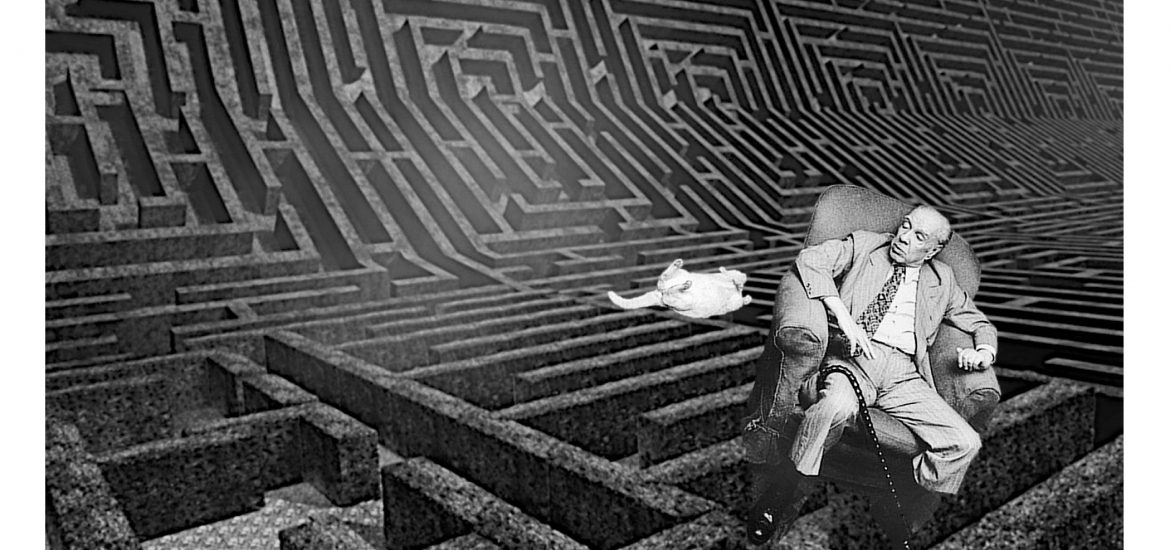In this article we talk (again) about life in the context of the 20th century mindset. Which road the culture take in the last 2500 years ? Where are we now ?
We humans like structures, but we live in The absurd, because the world is not inherently structured. This is why we no longer live (or believe) in a paradigm of the Cartesian deductive ideal of rationalism, instead it is seen as a suicidal illusion, an abandoned project, an absolute model of the west. But what does action mean in the context of the absurd ?
Every analysis which is used to gain certainty, can be only rational or logic by nature. Certainty is always exposed to chance or coincidence, meaning there is no absolute certainty about the world outside human context. Anthropomorphism in the end is our only way to achieve certainty. Extrapolation is logic driven. Atrophy, randomness, chaos, lack of ratio, lack of center or orientation, lack of scale are major factors in modern science and philosophy.
Our brain forces its patterns over the world although it is not part of it. It is easy for the brain to work in the way since it never notices it and also it might be useful in evolutionary terms to sustain life itself.
The world is infinite. In infinity no structure exists, a point or a line is only parts of the same things, its only infinity. There is no direction or orientation in infinity, no up and down, forward or back, think about time, things about space. Labyrinth (λαβύρινθος) is the Greek equivalent for the modern infinity, a place with no way out. The world which is in nature random and chaotic is also incoherent, unreadable. Descartes with his ‘clarus et distinctus‘ portrayed the opposite of that world, one which is methodically open for total investigation and mapping.
How can we predict and not prevent ? What does it say about the world ? What does it say about our ability to act in such a world ? In the Greek world it was known as Moira (Μοῖραι), as it is portrayed in the Greek tragedies, in modern language it is Fate. Oedipus cannot defeat is fate, but still he tries, and it is not just a pathetic case as the modern man is tempted to think but it is the human condition itself. While Oedipus has quite earthly ambitions, a contemporary tragic protagonist would represent other ambitions such as the pure (romantic) emotion, pure (rational) mind itself, something more complex and fashionable and less boring.
The first question a man should ask is ‘what is the first question a man should ask ?‘, this is not mistake or a paradox, without a question there can be no answers. Scientific investigation works in that way, especially according to Karl Popper. As an analogy for the western culture : before we made sure we ask the right questions, we were only busy with answers. In the history of philosophy and western culture even the pre-Socratic philosophers were not busy with this question and only later Plato and Aristoteles busied themselves with it.
They (Socratic philosophers) asked themselves the second most important questions : What is reality ? What is the self ? What is cognition ? What is moral ? What is beautiful ? What is good ? What is godly ?
These questions created disciplines : Ontology, epistemology, Ethics, Aesthetics, Morality, Religion, and for these, an upper category of metaphysics. If the questions are coming from the self discovering and aiming at the world then the world does not answer, it cannot. The world does not contain god, good, evil, moral, reality, fantasy, realism. Human thought is a pattern and a world which is something like a fog cannot take a shape, then our thoughts do not reflect the world.
Every patterning is a process of domestication, we want to feel at home. The Odyssey is a process of domestication and discovery of the world in human terms. It is our emotions that drives us to justice and morality, a state of balance, our orientation to classify the universe in terms of good and bad, better and worse.
Language until the 20th century was mostly used to create rational structures, not in a conscious way. With the undermining of rationalism in the end of 19th century, the use of language was also done in order to create contradiction, exposing the nature of language, not being able to reflect and represent reality and the world.
If a high degree of thinking can equally generate structures that are contradictory, they cannot lead us nowhere and therefore considered not productive in the best case and culturally suicidal in the worst case.
As Wittgenstein put it, we built ourselves a game of language, which we are already playing for 2500 years, we call it reason and logic, and we are very proud of it, because it is the main source of what we call order in our lives.
What Jorge Luis Borges called “The Garden of Forking Paths” is where we at today. We now understand that feverish western intellectual only created a labyrinth, a game (of language) that we invented and trapped ourselves within itself, an illusion. There is no way out of the labyrinth, when we assigned patterns we are forcing reality to take its image, we accept these patterns, we live within its system, and we also die by these patterns.
Borges likes to take walks in his garden, and reflect, in an aesthetic and beautiful way, about all the illusions and fictions that western society has created. The fact of representing reality in art only takes from its power, therefore in opposite with today’s absolute materialism, we have all the potential and freedom of creation, but only in art through spirit.

